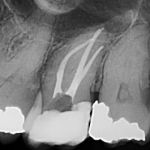- 1-Understanding-Gum-Recession-and-Its-Causes
- 2-The-Importance-of-Oral-Hygiene-in-Preventing-Gum-Recession
- 3-How-Diet-and-Lifestyle-Impact-Gum-Health
- 4-Professional-Dental-Care-and-Regular-Checkups
- 5-Effective-Home-Remedies-and-Preventive-Treatments
- 6-Real-Stories-How-Prevention-Made-a-Difference
1. Understanding Gum Recession and Its Causes
Gum recession occurs when the gum tissue surrounding the teeth pulls back or wears away, exposing more of the tooth or its root. This condition can lead to sensitivity, increased risk of cavities, and even tooth loss if left untreated. Understanding the root causes of gum recession is essential to knowing how to prevent it effectively.
Common causes include aggressive tooth brushing, periodontal disease, genetic predisposition, hormonal changes, tobacco use, and misaligned teeth. Each factor contributes to the gradual deterioration of gum tissue. For instance, brushing too hard with a stiff toothbrush can damage gums, while gum disease caused by bacterial infection leads to inflammation and tissue loss.
2. The Importance of Oral Hygiene in Preventing Gum Recession
Maintaining impeccable oral hygiene is the cornerstone of preventing gum recession. Regular brushing and flossing remove plaque buildup that causes gum irritation and infection. However, technique matters—using a soft-bristled toothbrush and gentle strokes reduces the risk of damaging delicate gum tissues.
Experts recommend brushing twice daily for at least two minutes and flossing once a day to keep gums healthy. Additionally, using an antimicrobial mouthwash can help control harmful bacteria and reduce inflammation. Incorporating these habits consistently protects gums from recession and supports overall oral health.
3. How Diet and Lifestyle Impact Gum Health
What you eat and how you live significantly influence gum health. Diets rich in vitamins C and D, calcium, and antioxidants strengthen gum tissue and support healing. Conversely, excessive sugar consumption feeds harmful oral bacteria that cause gum disease.
Lifestyle choices such as smoking dramatically increase the risk of gum recession by impairing blood flow to gum tissue and slowing healing processes. Managing stress is also vital, as it can weaken the immune system and increase susceptibility to gum infections. Adopting a balanced diet and healthy habits plays a crucial role in preventing gum recession.
4. Professional Dental Care and Regular Checkups
Routine visits to a dental professional are essential for early detection and prevention of gum recession. Dentists and hygienists can identify subtle signs of gum tissue loss and provide deep cleanings to remove tartar that brushing alone cannot eliminate.
In some cases, specialized treatments such as scaling and root planing or laser therapy may be recommended to halt progression. Regular dental checkups also offer an opportunity to receive personalized advice on oral care and lifestyle modifications. Partnering with a trusted dental provider, such as those recommended by Dentistry Toothtruth, is key to maintaining healthy gums.
5. Effective Home Remedies and Preventive Treatments
Alongside professional care, several home remedies and preventive measures can support gum health. Oil pulling with coconut oil, for instance, has gained popularity for its antibacterial properties and ability to reduce plaque.
Using natural ingredients like aloe vera gel as a topical treatment may soothe inflamed gums. However, these remedies should complement—not replace—regular dental hygiene practices and professional guidance. Additionally, using toothpaste formulated for sensitive teeth and gums can protect exposed roots and reduce discomfort.
6. Real Stories: How Prevention Made a Difference
Jessica, a 34-year-old teacher, shared how she overcame early signs of gum recession through diligent oral care and lifestyle changes. Initially unaware of the problem, she noticed increased tooth sensitivity and gum tenderness. After consulting with her dentist recommended by Dentistry Toothtruth, she adopted gentler brushing techniques, improved her diet, and quit smoking. Within months, her gum health stabilized, and further recession was prevented.
Similarly, Mark, a retiree, credits regular dental checkups and personalized hygiene coaching for preserving his gums despite a family history of periodontal disease. These stories illustrate how proactive prevention and professional support can effectively combat gum recession.
Taking steps to prevent gum recession is crucial for long-term oral health. By combining proper oral hygiene, healthy lifestyle choices, and regular dental visits, individuals can protect their gums and maintain confident smiles. For personalized advice and trusted dental products, visit Dentistry Toothtruth and take control of your gum health today.







 UI Health Mile Square Health Center - Primary and Immediate Care3.0 (13 review)
UI Health Mile Square Health Center - Primary and Immediate Care3.0 (13 review) Southside Orthodontics - Your Colonial Heights and Chesterfield Orthodontist4.0 (274 review)
Southside Orthodontics - Your Colonial Heights and Chesterfield Orthodontist4.0 (274 review) Pasha Dental Group Los Angeles - Dr. Nazli Majd4.0 (181 review)
Pasha Dental Group Los Angeles - Dr. Nazli Majd4.0 (181 review) North Penn Endodontics Group4.0 (87 review)
North Penn Endodontics Group4.0 (87 review) Root 66 Endodontics4.0 (16 review)
Root 66 Endodontics4.0 (16 review) Pediatric Dentistry of Newnan, LLC4.0 (199 review)
Pediatric Dentistry of Newnan, LLC4.0 (199 review) The Importance of Oral Health Education During Pregnancy for a Healthy Pregnancy
The Importance of Oral Health Education During Pregnancy for a Healthy Pregnancy Best Tips for Brushing Your Teeth Properly for Healthy Gums: Essential Techniques for Oral Health
Best Tips for Brushing Your Teeth Properly for Healthy Gums: Essential Techniques for Oral Health Why Skipping Dental Checkups Can Lead to Bigger Oral Health Problems
Why Skipping Dental Checkups Can Lead to Bigger Oral Health Problems Advantages of Porcelain Dental Restorations
Advantages of Porcelain Dental Restorations How Can Diabetes Cause Tooth and Gum Problems? Preventing and Managing Oral Health Issues
How Can Diabetes Cause Tooth and Gum Problems? Preventing and Managing Oral Health Issues Healthy Habits for Promoting Good Oral Health and Hygiene: Tips for a Healthy Smile
Healthy Habits for Promoting Good Oral Health and Hygiene: Tips for a Healthy Smile